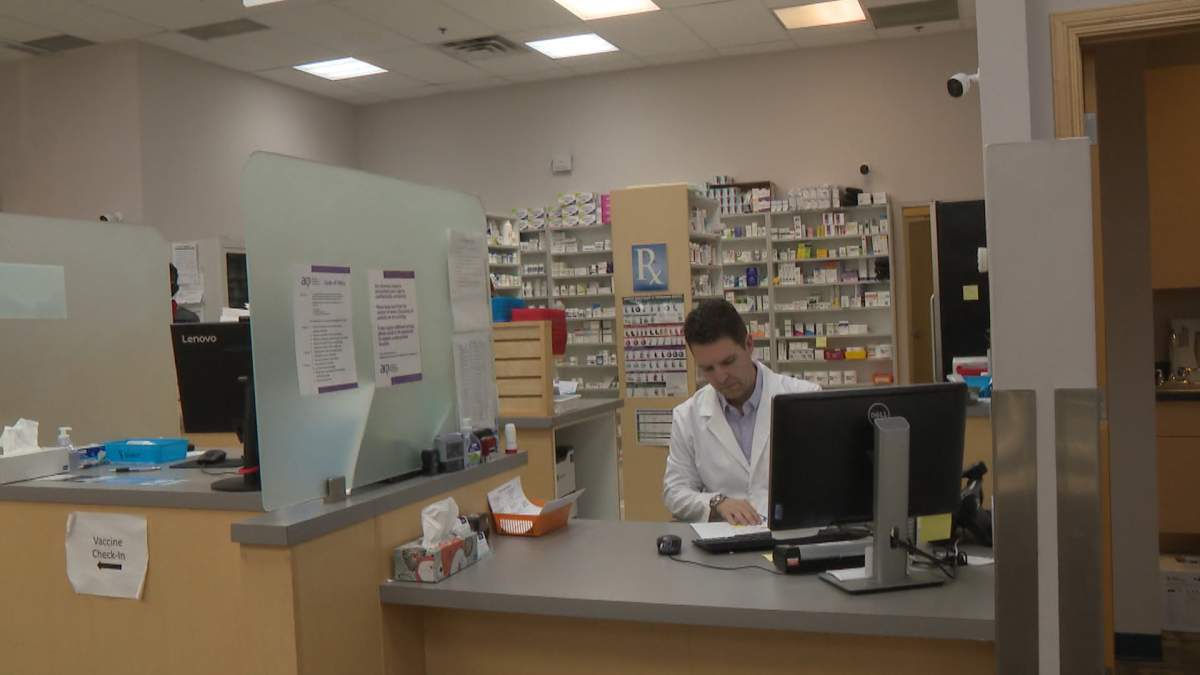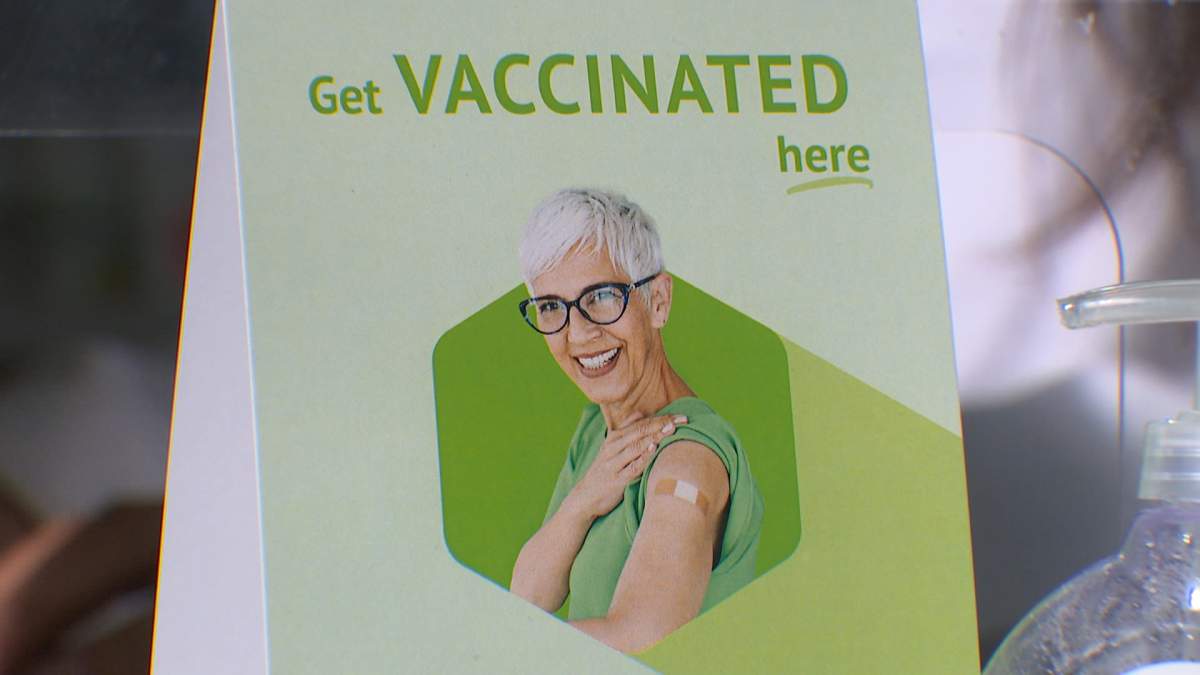Health officials in Alberta are sounding an alarm over delays in delivery of some vaccines they say could be contributing to vaccine fatigue, a low vaccination rate and could put unnecessary stress on the province’s health-care system.

The Alberta Pharmacists’ Association says the shortage particularly affects the high dose influenza vaccine for seniors.
“I haven’t received high dose vaccines now for a week and a half,” says pharmacist Randy Howden of the Crowfoot Medicine Shoppe Pharmacy and Compouding Centre, “and we have no idea when they are coming.
“I’ve had patients today getting very upset with me that we can’t take further appointments. It’s putting a lot of stress on me, it’s putting a lot of stress on my pharmacists and the rest of my team.
“We are going to have to start cancelling appointments for next week now and I don’t want to. Its becoming a huge problem.”
The Alberta Health Services dashboard shows so far this year, only about six per cent of Albertans have been vaccinated against illnesses like COVID, the flu and RSV.
Pharmacists tell Global News the province procured enough influenza and COVID vaccine for the season, but distribution has been an issue, particularly with one distributor, McKessan Canada.
Howden says he’s tried to get answers about why the delays, but has so far been unsuccessful.

Get weekly health news
“We are on our last few doses of high dose flu shots right now and i have no idea when I will be getting more,” adds Howden.
Contacted by Global News to ask about the delays, McKessan says in a statement there was “a misunderstanding earlier this month regarding our agreed-upon delivery date. At the same time, we are experiencing an unprecedented level of demand for refrigerated products, including seasonal vaccines for influenza and COVID-19.”
McKessan insists it’s working to rectify the problem and the company’s teams are “working overtime to ensure vaccine orders are filled as quickly as possible” to “accelerate vaccine delivery.”
“We have been in close communication with our customers and have taken immediate action to remedy this situation, including moving up ordering timelines to accelerate vaccine delivery. Our teams are working overtime to ensure vaccine orders are filled as quickly as possible,” reads the statement.
Infectious disease specialists warn if people are having trouble finding the vaccine, or they need to go to several places, it can cause further vaccine fatigue, and some people will just give up.
“Fatigue is a very real thing and undeniable, but the reality is the virus doesn’t care,” says University of Calgary infectious disease specialist Dr. Craig Jenne.
“The reality is that COVID still killed nearly a thousand Albertans last year — almost five times more than the flu kills — and prior to COVID the flu was the leading cause of death for infectious disease in Canada, so these remain significant illnesses,” adds Jenne.
“The higher vaccine uptake, the fewer people we are treating in emergency rooms for coughs and sniffles — we are admitting fewer people, we have fewer people in intensive care units — and that frees beds up for everything else we have to do, other medical treatments, cancer treatments, surgeries, as well as emergencies and trauma,” adds Jenne
AHS data from Oct. 13th to 19th shows there have been 297 hospitalizations for COVID in Alberta this year, including 10 patients in intensive care — 20 lab confirmed influenza cases — and 12 cases of RSV.




Comments